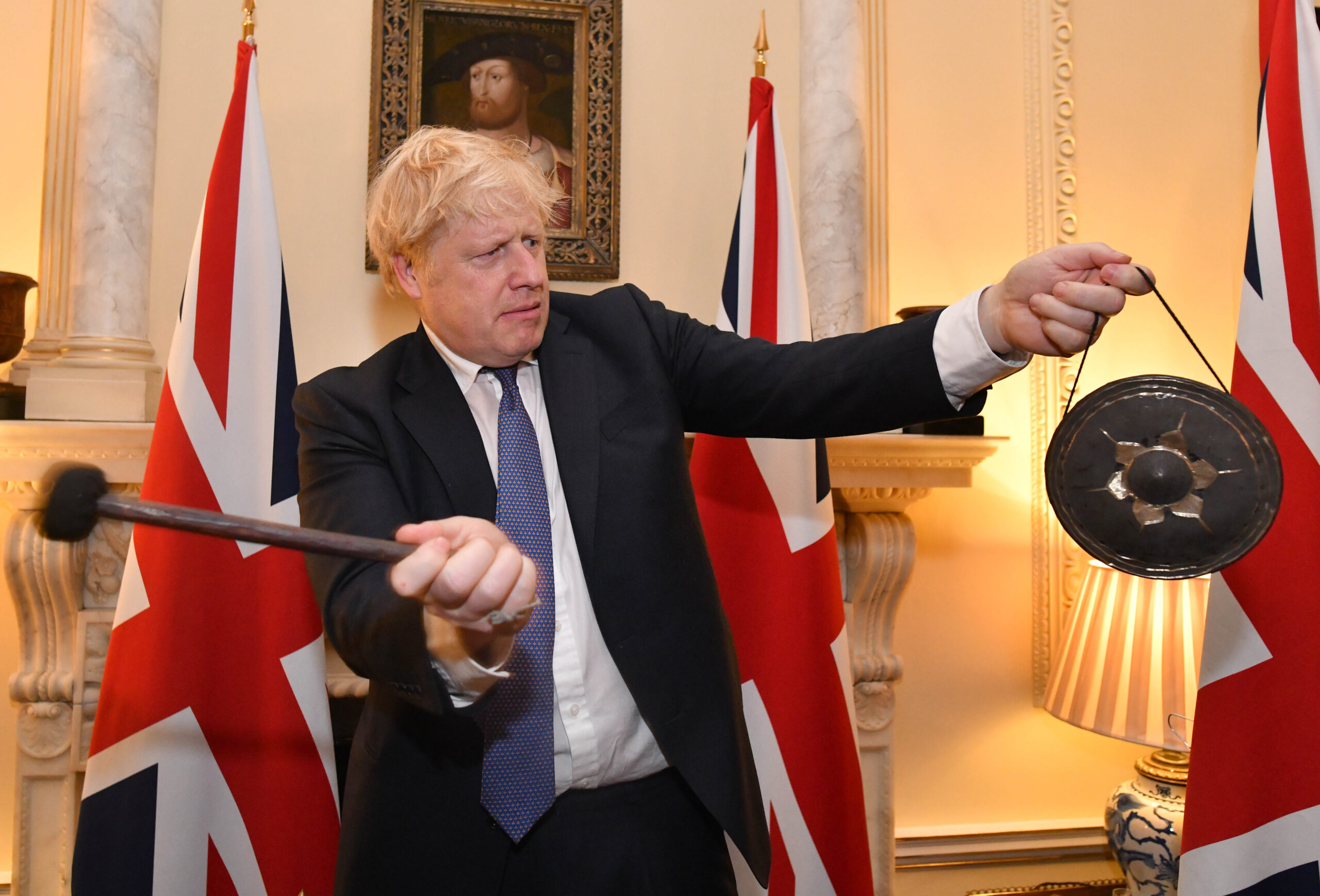
Boris Johnson’s name-drop of an ancient Roman statesman during his final speech as PM hinted at a future political return. As world-renown classics professor Mary Beard tells us:
What Johnson has seemingly neglected here, despite his classical education at the University of Oxford, was that while Lucius Quinctius Cincinnatus did indeed leave for a peaceful existence on the farm, he would later return to Rome again and rule as a dictator.

Boris Johnson knows exactly what he’s doing. A not-so-subtle brag, he is paralleling himself with the civic virtue and outstanding leadership so often associated with Cincinnatus. Simultaneously, he is playing up his controversial reputation: letting the classically educated draw the link between Cincinnatus and dictatorship, looking in and laughing at those left alarmed and triggered by his very clever joke.
With his furious resignation from the Commons in June, the fallout of ‘Partygate’ and a catastrophic premiership, a parliamentary return seems ruled out (for now), but we should still try to understand Johnson’s populism. An intriguing aspect of this pertains to classical antiquity. Boris Johnson has been known to tweet Homer’s Iliad, don togas, slip into Ancient Greek during UN speeches, and even try his hand at historical writing: (don’t) see (the truly dreadful) The Dream of Rome. For his efforts, Johnson has been kicked out of the movement Classics For All, which looks to expand the teaching of Greek and Latin into lower-income schools, and was issued a renuntiatio amicitiae – a renunciation of friendship – by his former Oxford ancient history lecturer Oswyn Murray, something that “emperors sent to those they wanted to get rid of”, ultimately “an invitation to exile or suicide”.
Charlotte Higgins’ Guardian article has done the work to expose Johnson’s classical shortcomings. Having had the same education as the former PM, Higgins illuminates how Johnson approaches classics in the shallowest ways. Rather than using classical references to add strength or depth to his arguments, his uses of classics are egotistical flicks, and projections of classi(ci)st superiority. Johnson’s ultra-selective cleaving, a “cultural and political vandalism”, merely tries to present him as intelligent by disarming the uninitiated with the briefest flash of some ancient Roman Wikipedia page.
Obviously, Johnson’s bumbling is far from capturing the living energy of classics. When studying the discipline, students and scholars actively question and test the subject’s boundaries; asking why we valorise the ancient Mediterranean, bridging philology and language-learning with race, gender, art, philosophy, archaeology, politics, economics, reception, and other theoretical studies.
But what has largely gone unrecognised is how “BoJo” has so fluidly deployed the classics. It cannot be said that the ancient past is objective. Throughout history, the classical world has been interpreted, manipulated, and distorted for countless political ends. Perhaps one of the most striking examples, the motif of the Olympic Flame – now a symbol of world unity, allowing all nations to compete together under the dazzling banner of the ancient games- originated in the 1936 Berlin Olympic Games, with Leni Riefenstahl’s infamous propaganda piece Olympia depicting a distinctly Aryan male carrying ‘Promethean fire’ from Athens to Berlin, a blatant (mis)appropriation of classical culture by the Nazi political machine. Classics is never one thing. The same subject of reception could equally be world-uniting, or fascist.
In a way, Johnson’s use of classics is therefore no less valid than any other. Is it factually inaccurate? Yes. Elitist? Yes. Reductionist? Yes. Eye-Rolling? Yes. But we need to go a little further than Higgins when she points out Johnson’s classical manipulations. Upon further investigation, the question arises of how classics feed into Johnson’s peculiar brand of populism.
Clearly, Boris Johnson’s love for a great, powerful, and beautiful ancient world fed into his charismatic leadership and appeals to nationalism. After all, mighty Rome would never have subjugated itself to the tyranny of an EU! At times, Johnson utilised his basic knowledge to pull out obscure ancient mavericks, reinforcing his own style of unconventional politics. Bewildering statements which simplified Rome’s immensely complicated political history often directly validated Johnson’s simplification of contemporary complexities (i.e., “Let’s get Brexit done!”). Overall, Johnson’s style of relatability, a dishevelled and eccentric persona, could be easily performed when using an obscure reference to jokingly imagine himself returning to Downing Street, reclaiming his emperorship, and establishing his own Roman tyranny a la Cincinnatus.
The fact that Johnson might be an embarrassment to the graduates, scholars, and professors of classics is beside the point. We can’t dismiss his appropriation as simply “lazy, tired, and utterly irrelevant”. It certainly is! But this remains an active deployment of an imagined ancient world: for Johnson, the cliché has become fact. Understanding how populists, like Johnson, are perfectly content to undermine their credibility in favour of charisma is crucial to help clear the brain fog so often caused by their messy ideologies.
Image: Boris Johnson Brexit Day, 2020// CC BY-NC-ND 2.0 DEED



Average Rating